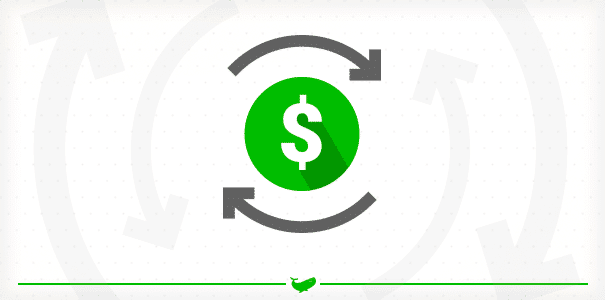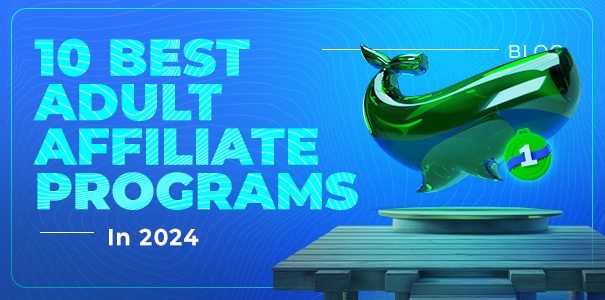
In affiliate marketing, receiving a commission is one of the most fulfilling rewards we marketers can receive for the fruits of our labor.
And sometimes, unfortunately, these fruits can be snatched away from us—in an instant.
We’re of course talking about chargebacks.
Make no exception, chargebacks can happen to anyone.
But what exactly are these buzzkillers and why do they make such a big impact on affiliate revenues?
To answer these questions, let’s take a step back and look at the overall impact of these silent killers of online business and e-commerce and see how they’ve even caused some in the industry to close up shop.
Sure, we may not always be able to stop a chargeback from happening, but there are at least some good preventive measures one can take to lower the chances.
What is a Chargeback?
Chargebacks are essentially refunds. It’s the term used to describe the reversal of funds when a consumer complains to their banking establishment over a specific charge / transaction on his or her credit or debit card.
The main idea behind chargebacks is to protect the cardholder at all costs from fraudsters and any other kind of unauthorized payments or theft.
It goes a little like this:
The consumer files a complaint with their bank over a specific charge, the issuing bank then investigates the validity of the claim; if the bank feels the complaint is valid and legit, the financial institution will then take the money directly from the merchant’s account and give it back to the consumer.
So, what’s the main difference between a chargeback and a refund?
The main difference is that the merchant has absolutely no say in the refund process that occurs during a chargeback.
In other words, the merchant has no way of knowing the exact number or the amount that will be withdrawn directly from their account.
...Sword of Damocles, anyone?
When does a Chargeback usually occur?
Chargebacks occur whenever the issuing bank believes that the consumer’s request for a chargeback is well-founded.
Some providers have begun wondering if performance web marketing is in fact leading to a greater number of chargebacks than ever before due to the few bad apples of the affiliate marketing world and their fraudulent means.
Affiliate Fraud
No secret here — since the dawn of performance marketing, affiliate fraud has been a significant issue plaguing all aspects of the industry.
The problem is so prevalent, companies have been founded to combat this issue -- affiliate fraud detection and prevention traffic screening services are flourishing.
At CrakRevenue, we're cautiously aware of this recurring problem and we have numerous tools and services in place to combat this growing threat.
Fraud hurts everyone involved, so you can bet we have protocols in place to do our best to detect fraudulent activities.
Using stolen credit card numbers to generate fraudulent sign ups is still the number one fraudulent act triggering an abundance of chargebacks.
Second to that, would be making false promises in the name of the merchant or some other deceitful act which misleads the user and results in them being angry and filing a dispute with their bank.
Of course, again, any CrakRevenue affiliate involved in any such illicit activity will see their account banned and their commissions forfeited.
Friendly Fraud
There's another type of chargeback fraud that's been going on for a while now with consequences just as devastating. It’s been dubbed the name “Friendly Fraud.”
Don’t be fooled by the name—this type of fraud is far from pleasant.
Friendly Fraud occurs when a visitor or consumer knowingly and intentionally uses their credit card for something — but then afterwards, contacts their bank and requests a chargeback after receiving what they set out to receive.
It can be committed for a number of reasons, but one thing is clear, it’s always for the wrong reasons.
ChargebackTech has compiled a list of the most common reasons for people doing chargebacks.
Reasons that relate the most to the adult industry include...
- The person has ‘buyer’s remorse.’
- A family member made the purchase but the cardholder doesn’t want to pay the bill.
- The cardholder forgot about or didn’t recognise the transaction.
- The person uses a chargeback to avoid some kind of cost or fee.
- The cardholder wants to make some extra money.
In other words, even if your promotional methods are totally solid — you’re likely to at some point in your affiliate marketing journey fall victim to someone's chargeback.
And with that said, what repercussions do chargebacks have on the user, the provider, and even yourself?
The consequences of a Chargeback
Everybody is affected by chargebacks in different ways.
For the Merchant
Since merchants have absolutely no say in the refund process that occurs during a chargeback, merchants often consider chargebacks the equivalent of cyber shoplifting.
But rather than just losing out on the money that was refunded—the long-term effects of a chargeback can be devastating for them.
Indeed, for each chargeback issued, merchants have to pay an expensive fee.
Moreover, if a business exceeds the authorized number of chargeback disputes it is allotted (which varies by financial institution), the bank may freeze their account thereby incapacitating them, essentially destroying their business and their ability to process any other payments.
It's like a domino effect.
With that in mind, it's no wonder chargebacks have become the number one enemy of Internet merchants.
For the Consumer
Chargebacks originated from an underlying need to protect the consumer - and in this regard - we can say that it has been very successful at that.
However, on the same front, one cannot deny the negative repercussions that have arisen with the increasing number of chargebacks consumers have been filing.
For instance, merchants have ultimately raised prices in extreme cases, factoring in potential chargebacks into the market price.
If that’s not negative fallout, we don’t know what is!
Even Sony has come out with a drastic solution against chargebacks by modifying their Terms of Service to include the right to permanently ban any Playstation Network account member who files a chargeback against them.
Not only that, but all game licenses are lost upon account termination.
For Sony to take it that far, you know the problem is complex.
And finally, if a bank suspects someone of friendly fraudster activity, they can close his or her account and - consequently - do a real number on that person’s credit score.
For the Affiliate
At CrakRevenue, if a chargeback occurs—we no longer receive the funds, so you don’t either.
The chargeback amount is automatically subtracted from your affiliate commissions. It’s as if you never earned that commission at all.
It can happen on both PPS as well as—you guessed it—RevShare offers.
Moreover, affiliates who have an exceptionally high number of chargebacks occurring under his or her affiliate account on the leads and sales he or she is generating will of course be subject to closer examination and greater scrutiny.
One’s promotional strategy must be looked at if it’s leading to counterproductive ramifications...
And it goes without saying: anyone found guilty of any type of affiliate fraud resulting in chargebacks at CrakRevenue will see their account banned and their commissions forfeited.
So, how the heck can we prevent Chargebacks from happening?
We may not be able to prevent them all—but we can sure do our best as marketers to ensure that we’re following only the best marketing practices.
The following principles truly do make all the difference in lowering the chances of a chargeback dispute from ever happening.
Don’t Mislead
This includes blind leading, direct-to-form promotion, false incentives, and any other kind of deceitful tactic that might confuse the user or make them feel like they didn’t get what they signed up for or purchased.
Don’t be short-sighted just to get a lead; you want to think about what comes after, what comes next. Being short-sighted can lead to chargebacks while having a long-term view of things leads to conversions and rebills!
Detail the Product Well
Explain to the consumer EXACTLY what he or she gets if they make the purchase.
Chargebacks have also been known to occur when the merchant’s site offers poor customer service.
So if there’s a known refund process for the service at hand, go the extra mile and list all the necessary steps that one can take to successfully request a refund from the merchant rather than encouraging someone to go through the chargeback process.
Go for Quality over Quantity
There’s definitely a direct link between the type of traffic one can send and the actions that can follow.
Attract quality traffic from reputable traffic sources and promote proven offers for the most successful end result—happy, SATISFIED customers!
Hopefully we’ve got you covered in that department by providing you access to the most proven lineup of offers, brought to you by only the most trusted & professional providers in adult.
Goal: fewer surprises while checking those stats!
Now that we understand chargebacks a little bit more on the surface, we’re one step closer to fewer unpleasant Stat readings.
Sure, none of us are immune to chargebacks totally, but the principles outlined here today are nothing short of a solid starting point for everyone looking to do their best.
Because when we know we’re doing everything in our collective marketing power to decrease the chance of chargebacks from happening to us — well, let us just say it feels way better this way.


